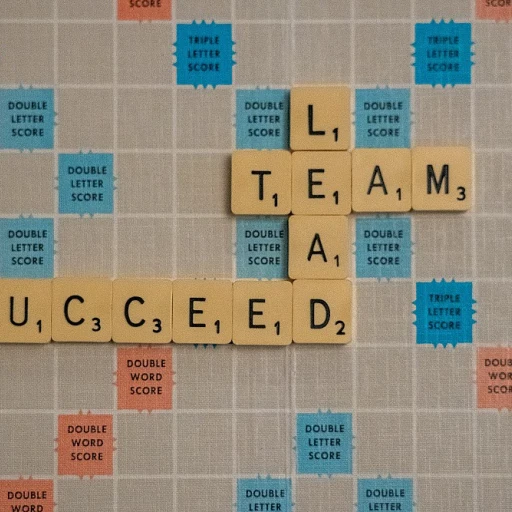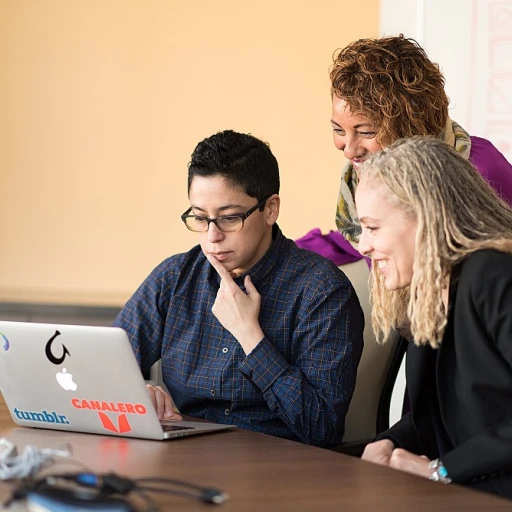
The Growing Importance of Soft Skills
The significance of soft skills in the hiring process is rapidly increasing, with employers placing a greater emphasis on traits that go beyond technical qualifications. While a resume can highlight hard skills, soft skills are the intangible elements that often differentiate a candidate's ability to effectively operate and communicate within a team. These skills provide insight into how a person may perform in the work environment, influence team dynamics, and contribute to maintaining strong relationships.The Role of Soft Skills in Communication
A key component of soft skills is effective communication, which involves not only verbal exchanges but also listening and interpersonal interactions. This is essential for fostering teamwork, leadership, and conflict resolution abilities. A person who excels in communication can convey ideas clearly and make strategic decisions, helping to resolve conflicts promptly and efficiently.Why Employers Value Soft Skills
Employers recognize that soft skills such as emotional intelligence, problem solving, and critical thinking are pivotal for active collaboration. An individual with strong interpersonal skills can drive processes forward, enhance time management, and ensure that management skills align with company goals. Applying these intangible skills in everyday scenarios demonstrates a candidate's potential to lead and motivate others effectively. In conclusion, employers increasingly view strong soft skills as foundational for sustaining effective teams and driving organizational success. In-depth assessments of these skills during the hiring process can offer insights into a candidate's future performance and overall fit within an organization. To understand more about recognizing potential constraints or evaluations during the hiring procedure, it might be helpful to learn how to recognize if you're under investigation at work.How Employers Assess Intangible Skills
Methods to Identify and Evaluate Soft Skills
Employers play a crucial role in assessing soft skills, often seeking a thorough understanding of a candidate’s communication proficiency and their ability to work effectively in teams. The importance of assessing skills such as problem solving, leadership, and strategic thinking cannot be overstated, as these are the competencies that define intangible skills. But how exactly do employers evaluate these? Firstly, behavioral-based interview questions are a popular method used during the hiring process. These questions are designed to understand how a person has applied their skills in past situations, such as resolving conflicts or maintaining strong relationships. Candidates provide concrete examples of their skills in action, which give insights into their emotional intelligence and interpersonal communication abilities. Secondly, skills assessments and tests focusing on scenarios related to time management and critical thinking are becoming commonplace. These are particularly effective in gauging an individual's decision-making capabilities along with their attention to detail and problem-solving strengths. Moreover, employers often rely on references and feedback from previous workplaces to gather information about a candidate’s teamwork and management skills. Such insights help determine if the person has exhibited effective communication skills and can maintain the strong, cooperative work relationships that are essential in team environments. It also involves using technology and innovative platforms that provide deeper insights into intangible skills beyond what is evident from the resume alone. In some cases, the evaluation includes online assessments that simulate work situations and measure the applicant’s reaction and performance under stress. While the inherent challenge remains in quantifying such skills due to their intangible nature, these methods collectively offer a comprehensive approach to how employers effectively identify and evaluate the soft skills necessary for a role. For more insights, you might consider reading about whether speeding is considered a misdemeanor as another element in understanding the broader background check landscape.Challenges in Measuring Intangible Skills
Addressing the Challenges in Gauging Intangible Skills
While the significance of intangible skills such as emotional intelligence and effective communication continues to rise in the hiring process, employers face persistent difficulties in accurately assessing these competencies. Intangible skills often do not appear explicitly on a resume, complicating the evaluation process. This section delves into some of the key challenges surrounding the measurement of intangible skills during background checks.
One primary challenge is the lack of standardized methods for evaluating skills like strategic thinking, problem-solving, or active listening. Unlike technical abilities, intangible skills are inherently subjective and can be interpreted differently by each interviewer. This subjectivity may lead to inconsistencies in how candidates are assessed, impacting decision-making during the hiring process.
Many employers rely on interview techniques to assess these critical abilities. While interviews provide opportunities for candidates to demonstrate soft skills, they may not effectively capture the full range of a person’s capabilities. For instance, an applicant could display strong interpersonal communication and leadership skills during an interview, but maintaining performance across various work situations demands ongoing assessment beyond initial impressions.
Another hurdle involves the difficulty of integrating intangible skills into traditional background checks. Conventional background screening is well-suited to evaluating hard skills and factual information, but assessing intangible qualities involves a deeper analysis of behavior and personality traits. Employers are increasingly turning to new technologies and tools designed to fill this gap and provide more comprehensive insights into a candidate's soft skills profile. These advancements not only aid in evaluating effectiveness but also help maintain alignment with company culture and teamwork dynamics.
Furthermore, the ability to provide honest and unbiased assessments can be clouded by unconscious biases. Even seasoned professionals conducting interviews can unintentionally favor candidates with communication styles or conflict resolution approaches similar to their own. Implementing training programs focused on minimizing bias and utilizing diverse interview panels can help create a more equitable evaluation environment.
As employers continue to refine their approaches to assessing intangible skills, they must remain vigilant in addressing these nuanced challenges. Ongoing research and adaptation of new methodologies are essential steps in ensuring an effective evaluation process that complements conventional background check methodologies. By adopting a holistic approach, organizations can build strong teams equipped with the necessary skills to thrive in an ever-changing work landscape.
The Impact of Intangible Skills on Hiring Decisions
The Influence of Intangible Skills in Hiring Outcomes
The role of intangible skills in hiring decisions cannot be overstated. As organizations place increasing value on abilities like effective communication, problem solving, and leadership, candidates equipped with these skills often have a competitive edge. This involves not only having these skills but also demonstrating them effectively during the interview process and throughout one's resume. Employers actively seek individuals who can provide strong management and exhibit effective teamwork, as these qualities often translate into a high-functioning work environment. A deep understanding of emotional intelligence can help a person maintain strong relationships with colleagues, fostering a team atmosphere conducive to creativity and productivity. Furthermore, intangible skills like active listening and conflict resolution are pivotal for roles that demand strategic thinking and decision making. Essentially, possessing and effectively showcasing these areas of expertise during an interview or assessment can significantly impact hiring decisions. They allow employers to gauge a candidate's potential to resolve conflicts and approach tasks with critical thinking. When considering interpersonal communication skills, employers recognize that candidates who excel in this area are likely to integrate seamlessly into their team. Strong interpersonal skills allow individuals to navigate complex interpersonal dynamics and maintain harmonious work relationships. As such, effective communication and the ability to pay attention to detail are not merely assets but key determinants in the decision-making process during hiring. Having these skills in one's arsenal not only strengthens a resume but also positions an individual as a valuable asset capable of driving the organization towards its objectives. Ultimately, the emphasis on maintaining effective communication and leadership underscores the crucial role that intangible skills play in shaping hiring outcomes.Trends in Background Check Technology
Recent Technological Advancements in Assessing Non-Technical Skills
Modern-day background checks are leveraging advanced technology to effectively evaluate soft skills, which play a crucial role in hiring decisions. With the increased focus on intangible skills such as communication, teamwork, and leadership, employers are turning to a blend of techniques to assess candidates more holistically.
One significant trend involves using AI-powered tools to analyze data from a variety of sources. These sophisticated tools can evaluate a person’s online presence, such as social media interactions, to provide insights into interpersonal communication and emotional intelligence. AI-driven platforms can assess how effectively a candidate maintains strong relationships and resolves conflicts, which are key interpersonal skills in any work environment.
Additionally, video interview platforms have incorporated behavioral analysis algorithms that monitor a candidate’s ability to demonstrate management skills, active listening, and problem-solving. By analyzing aspects such as body language and tone of voice, these platforms offer a more nuanced evaluation of how a person might fit into a team or handle complex workplace challenges.
- Feedback and Employee Surveys: Companies are increasingly using data from 360-degree feedback and employee surveys to measure skills like strategic thinking and critical thinking. This data provides tangible insights into a candidate’s decision-making processes and conflict resolution abilities.
- Simulation-Based Assessments: Employers are integrating simulation exercises to observe how candidates navigate real-world scenarios, particularly their time management and ability to work under pressure. These simulations help evaluate how effectively a candidate can utilize their management skills in a dynamic workplace environment.
Overall, while assessing intangible skills remains a complex challenge, the integration of these advanced technologies provides a more transparent and comprehensive approach to understanding a candidate’s potential. As the reliance on strong interpersonal and communication skills continues to grow, so does the demand for more effective background check technologies that can accurately highlight soft skills and their impact on organizational success.
Preparing for a Soft Skills Assessment
Preparing for a Soft Skills Assessment
To succeed in soft skills assessments, candidates need to effectively highlight their intangible abilities. It begins with crafting a skills resume that not only lists traditional qualifications but also emphasizes soft skills such as communication, problem solving, and teamwork. Employers are increasingly interested in seeing a candidate's emotional intelligence, strategic thinking, and conflict resolution capabilities.
During an interview, it's essential for a person to demonstrate strong leadership and interpersonal communication. Candidates should prepare by reflecting on past experiences where they showcased abilities like active listening, time management, and critical thinking. Specifically, they should be ready to provide concrete examples that illustrate their ability to resolve conflicts and maintain effective communication.
Understanding the role of intangible skills in the workplace involves recognizing how they contribute to building strong relationships and enhancing team dynamics. The preparation process for a soft skills assessment requires a holistic approach that considers both the person’s individual skills and their capacity to work effectively in a team setting. Showcasing a well-rounded skill set, including both technical and soft skills, can be the key to differentiating oneself in a competitive job market.













